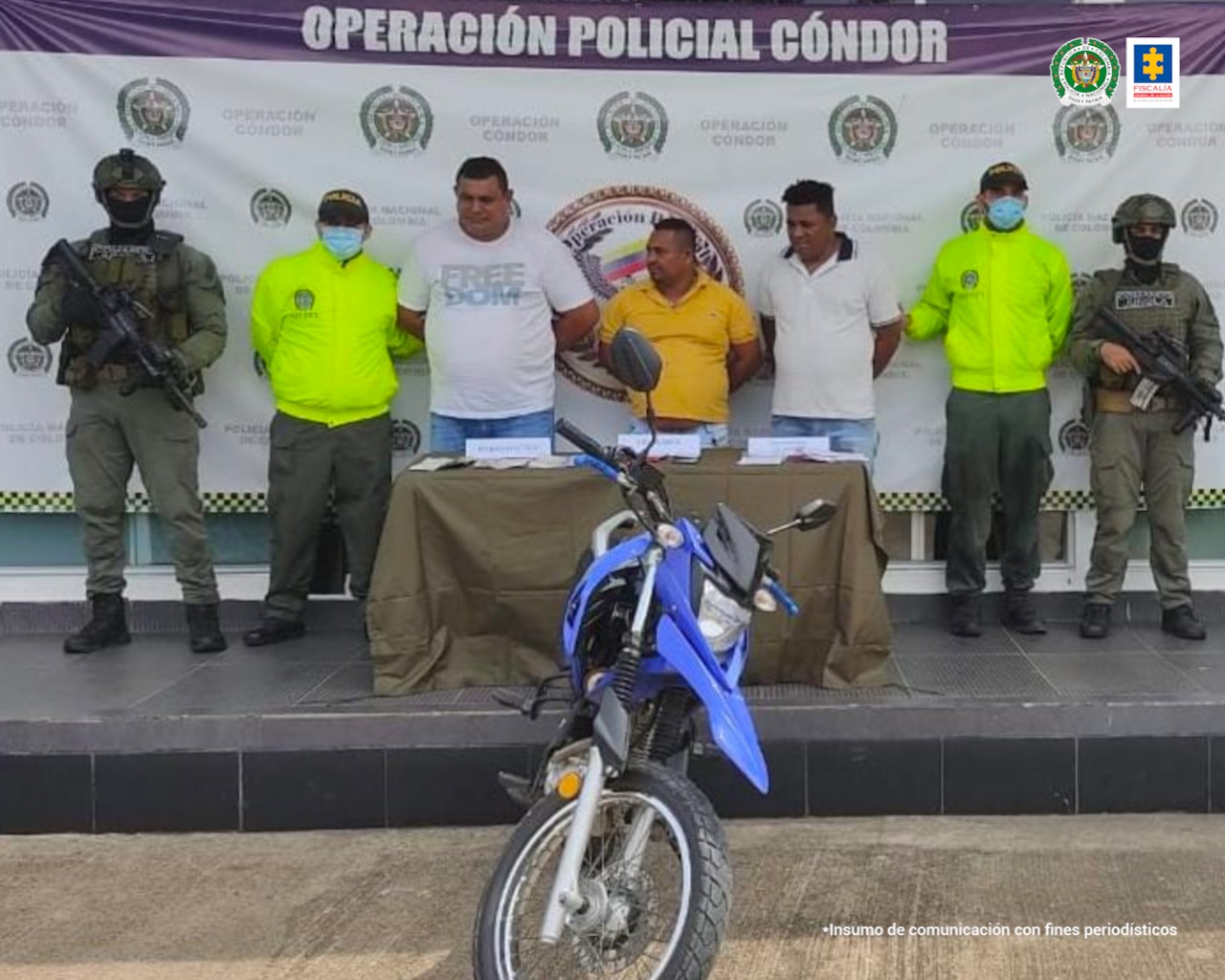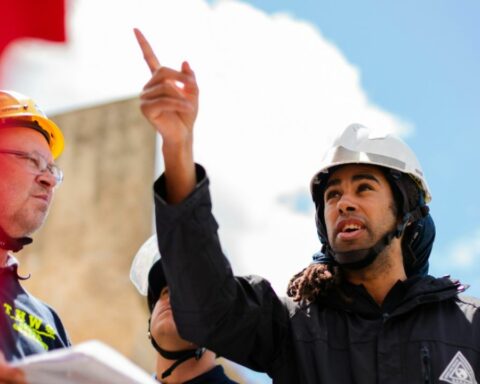Three days remained in the country, the undersecretary for Civil Security, Democracy and Human Rights of the United States, Uzra Zeya. During her visit, the representative of the government of Joe Biden met with authorities, NGOs and Venezuelan immigrants, who received first-hand the announcement about the donation of more than US $ 6 million dollars made by the US government for the humanitarian assistance in Chile, in order to support the agencies that have been working in the country on the issue of migration and thus ensure attention to the needs of Venezuelans in vulnerable conditions, providing them with legal advice, medical care, safe shelter, kits hygiene and basic aid items.
In her twenty-seven-year career in the US Foreign Service, Under Secretary Zeya has served in many capacities, including Deputy Executive Secretary to Secretaries of State Condoleezza Rice and Hillary Clinton. She has also served in Syria, Egypt, Oman, and Jamaica, as well as in various political roles at the Department of State.
In her current role, Deputy Secretary Zeya leads the Department of State’s efforts to prevent and counter threats to civilian security. Under her supervision are the offices of Conflict and Stabilization; Fight against Terrorism; Democracy, Human Rights and Labor; International Narcotics and Law Enforcement Affairs; Population, Refugees and Migration; Global Criminal Justice; International Religious Freedom; Surveillance and Fight against Antisemitism; and the Office for Monitoring and Combating Trafficking in Persons.
-What is the diagnosis that the United States has on how the migration issue is being resolved in Chile and what was taken into account for the donation of US$ 6 million?
-We are witnessing a humanitarian crisis regarding the forced displacement of millions of Venezuelans throughout the continent and in the southern hemisphere as a direct result of the Maduro regime of oppression and suppression of democracy in Venezuela. Here, in Chile, there are more than 500 thousand Venezuelans who have found security, integrity, dignity in this country. Chile’s host communities have been extremely generous, and Wednesday’s announcement demonstrates the United States’ commitment to a shared responsibility throughout the hemisphere to better manage this movement of irregular migration and to advance the goal of dignified migration. and safe for everyone.
-It is a fact of the cause that criminal gangs use the desperation of the people, who are forced to forced displacement, to profit from them by increasing their vulnerability. What should be done to deal with human trafficking?
-The United States and the Chilean government are deeply concerned about human trafficking and being able to combat it. We have seen that irregular migration in the region is creating a door for criminal actors with the exploitation of people who are simply looking for a better life or who suffer from persecution. Therefore, it is very important that we work at the regional level to be able to detect these criminal actors and take a humanitarian approach to human trafficking, to protect the survivors, but also to be able to capture the perpetrators, to discourage this type of scourge. for these two countries.
-And in the United States, how are they resolving the issue of irregular migration, after the policies of former President Donald Trump, for example, of separating the families of immigrants, to order their expulsion?
-Orderly and safe migration is what we protect in the southern hemisphere, including the United States. There are several steps that the administration has taken to be able to rebuild an asylum center, but also to stop practices such as the separation of families or the prohibition of unaccompanied minors. We are developing policies that are in line with international commitments, but we also have a commitment to regular and protected immigration enforcement, ensuring that fewer people make the decision to leave their family members, and also we need to determine a root-cause strategy to determine the drivers of irregular migration and forced displacement. The lack of economic opportunity, transnational crime, the problems with transgender communities. Therefore, there is an important aspect of these two governments, the United States and Chile, that they are trying to address together.
-One of the negative externalities of irregular immigration is the feeling of insecurity produced by the participation of immigrants in crimes of high social connotation.
I think there are a couple of considerations there. Certainly, the fight against crime and the protection of citizens and communities is the obligation of all governments, as well as applying the right of law. All perpetrators must be tried with due process and with the obligation of the rule of law. As a principle it is important to say that no one is above the law”.
-In Chile, as in other countries, they suffer from irregular immigration, these situations begin to feed racist feelings, which are expressed with violence, affecting human rights.
-There are other factors that are at the root of human rights violations, one of them is xenophobia, intolerance. It is very important in the context of forced displacement and irregular migration that the problems of xenophobia are considered, which I believe, again, are the scourges of our society.
-In your experience, what common factors are behind human rights violations today?
-There are some common points that we see as factors behind human rights violations and some of the most important deficits have to do with the lack of a government, responsible governance. A responsible government with its citizens. The United States has advanced a democracy initiative in which we appreciate the participation of Chile. This initiative is based on the idea that democracy is the best place in the system to generate prosperity, security and protection, sustainability in the world, and it often happens that regimes tell citizens that they have a choice between their own rights and prosperity and security. I think, in real time, today we see it with the brutal oppression of Russia against Ukraine, this is not only a violation of the human rights of Ukrainians, but it is a destabilization of the entire world, of ensuring food supply. Therefore, it is threatening the safety of all citizens.
-During the social outbreak of 2019, you were general director of the Alliance for the Construction of Peace to end conflicts by peaceful means. How did you observe what was happening in Chile?
-I want to point out two points: first, the right to demonstrate peacefully is part of human rights, in all democracies there is an obligation and an imperative that its citizens have a better life. In the United States we work in the union of peoples. No democracy is perfect, it must respond to the needs of citizens. I cannot blame Chileans for channeling their aspirations and participating in democratic and peaceful processes such as the current Constitutional Convention, where proposals are presented for the Chilean people to decide.
-As a result of the riot, public and private property was damaged, and people’s physical integrity was profoundly affected as a result of the excessive use of police force, resulting in more than 400 eye injuries, some of whom lost their sight completely. must happen to begin to close those wounds?
-I believe that democracies are finally responsible for their citizens, if there is use of excessive force. I believe that responsibility is due process. As I said, no one has to be above the law, impunity generates mistrust between citizens and security services, and that can harm national stability. What I have heard during my three days in Santiago is a strong commitment by the Chilean government to the rule of law and due process. Above all, in this constituent process of all Chileans.
-In the United States, the murder of George Floyd generated a lot of indignation and the reaction was massive protests. How are they at home in terms of respect for human rights?
-President Biden said ‘we are not perfect as a democracy, we continue to work to perfect our democracy’, certainly, we need racial equality and equity, and that is a tremendous priority for President Biden, as well as gender equality and equity. We have had a very difficult experience with the Covid-19 pandemic, there has been marginalization of the population, including racial minorities. The government is taking action and responding with policies that seek, in the case of girls and women, to increase gender equity and equality in health, education, employment; as well as entrepreneurship opportunities. But also with our foreign policy the issue of gender equality is not seen as a secondary issue, but as an integral issue. You mention the George Floyd tragedy, there is a galvanized movement in the United States and around the world for police accountability, to build trust between police and civilians. There are a number of reforms, at the national and local levels, to better respond to these citizens’ concerns. Finally, a jury in the state of Minnesota found him guilty of this act, and I think that also demonstrates the application of the rule of law throughout the process.








